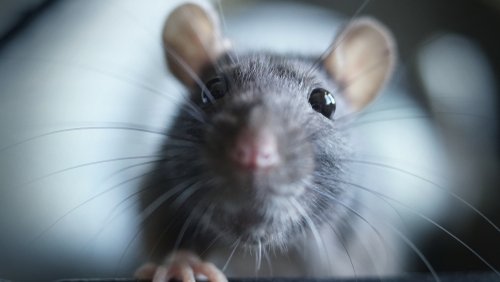Does the mere thought of a rat or mouse make you cringe? Do you find yourself overwhelmed when people mention them? You may have Musophobia, or the fear of rats and mice. The condition is more common than you think – affecting hundreds of thousands of people worldwide.
Symptoms of Musophobia
The degree and type of symptoms associated with Musophobia vary from person to person. Common symptoms experienced by people with this fear include:
- Extreme anxiety around mice or rodents
- Stress when thinking about mice or rodents
- Feelings of being overwhelmed when seeing a photo of mice or rodents
- Fainting when seeing a mouse or rat
- Dizziness, hysteria, sweating, increased heart rate when thinking or seeing a mouse or rat
- Feeling nauseous around rats and mice
- In extreme cases, panic attacks when people mention mice or when a person sees them in pictures or TV
- Actively avoiding areas, like pet stores, that may have these creatures
Also read: How a Mice Infestation Can Affect Your Health
Causes
Most people will agree that rats can wreak havoc on a home, leaving waste, and destroying property. So it’s natural not to like them. But there are many more deep-rooted causes that can trigger Musophobia in a person, including:
- The history of rats and mice. As known carriers of pathogens, they are infamous for spreading disease, including the Bubonic Plague that killed an estimated 25 million people in Europe in the 1340s.
- The association of rodents with dirty, dark, and wet environments and overall germs and contamination. Many people who have Musophobia also have a general fear of germs called Mysophobia.
- Learned behavior from family or friends. Someone with Musophobia may have experienced his mom or dad screaming because of a rat as a young child. People generally describe rodents in grotesque ways, which can affect a child.
- A negative or traumatic experience with a rat or mouse, such as being bitten by one.
- Television and film that portray rodents as scary or the bad guys.
Treating Musophobia
Being afraid of something you can’t control is never healthy, so seeking help with Musophobia is a good idea. Rats can pop up in unexpected places – literally and figuratively. You may not know when you’ll see a rodent on the street or a mouse on TV. Your friends and family members may keep them as pets without your knowledge, making your next visit to them uncomfortable. Here are some general ideas to help treat and alleviate Musophobia:
- Seek professional therapy or counseling if your Musophobia is so extreme it’s affecting your personal or work life. In severe cases, some may not want even to leave the houses. Long term solutions include psychotherapy, hypnotherapy, cognitive behavior therapy, or gradual desensitization therapy. For less extreme cases, anti-anxiety medicine may help.
- Educate yourself on rats and mice. Modern medicine has made many diseases they carry obsolete and could lessen any fears.
- Get advice on how to proactively make your space cleaner and safer. You can easily prevent rodents from making a surprise appearance in your home by properly disposing of garbage, repairing any damaged screens or holes in your foundation, and eliminating moisture sites.
- Have a professional pest control service inspect your home.
Also read: Get Rid of Rats!
If you feel you have Musophobia, don’t worry. The phobia arises from sensible origins. Know the symptoms and if you think you have them, consider help in the form of counseling or professional rodent control such as our Healthy House Program. Through these methods, you’ll be able to diminish your phobia and lead a healthier life overall.



